Growing biodynamic educational opportunities

Biodynamic agriculture offers a holistic approach to creating healthy food, healthy soil, and healthy farms while supporting ecological, social and economic renewal. With a growing number people feeling called towards farming and gardening, there is a great need for education in holistic, sustainable agriculture. The Biodynamic Association is pioneering education and training to meet this need, bringing biodynamic insights and practices into the landscape of the food and farming movement.
Our Biodynamic Education Program is focused on seven key strategies:
- Help Newcomers Find their Way into Biodynamics
- Invest in the Development of the North American Biodynamic Apprenticeship Program (NABDAP)
- Grow the Biodynamic Scholarship Fund
- Foster and Support Professional Learning Communities
- Design and Deliver Advanced Trainings in Biodynamics
- Develop a Biodynamic Educators Collaborative
- Leverage the BDA’s North American Conference
These strategies build on our existing educational programs and projects — including the North American Biodynamic Apprenticeship Program (NABDAP), the Biodynamic Scholarship Fund, the Biodynamic Initiative for the Next Generation (BING), and Farm-Based Educators (FBEIBA) — as well as expand into new areas where we have identified needs. More details about each of these strategies are available below.
For more information, contact Thea Maria Carlson at thea@biodynamics.com or 262.649.9212 ext. 5.
Biodynamic Education Program: Key Strategies
1. Help Newcomers Find their Way into Biodynamics:
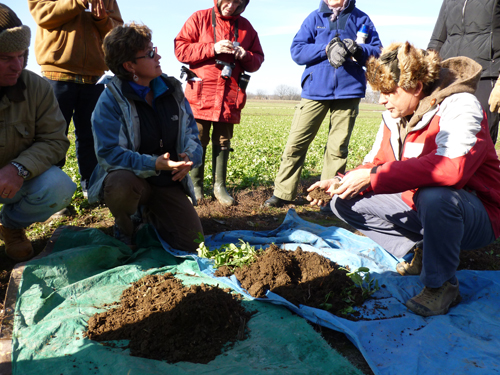 The BDA is increasingly deluged with introductory questions about biodynamics via email and phone, as well as requests for help organizing introductory biodynamic workshops at existing organic conferences. To better meet this need we plan to:
The BDA is increasingly deluged with introductory questions about biodynamics via email and phone, as well as requests for help organizing introductory biodynamic workshops at existing organic conferences. To better meet this need we plan to:
- Develop an online forum where introductory questions can be addressed by experts and where the answers are archived and are therefore easily searchable by others;
- Redesign the BDA website and significantly enhance the content to make it much easier to gain an orientation to biodynamics and to the different programs and learning opportunities offered by the BDA and in the wider BD community;
- Organize and host online webinars that provide an introduction to biodynamics, and its philosophy, principles and practices;
- Work proactively with organic and sustainable agriculture groups to get biodynamic workshops organized at their annual conferences;
- Develop attractive and effective display materials for exhibiting at organic and sustainable agriculture conferences;
- Develop an online database of webinars and videos that introduce and provide basic training in biodynamics.
2. Invest in the Development of the North American Biodynamic Apprenticeship Program (NABDAP):
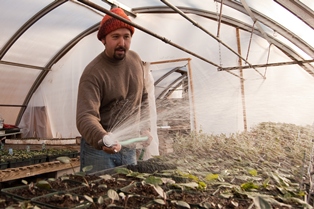 There are currently over 40 young people enrolled in the Association’s apprenticeship program, which combines two years of structured on-farm training and mentoring with a course of classroom study in biodynamics. As part of our broader educational efforts, we feel it is essential to build on the success of NABDAP and foster its further growth and development. We plan to strengthen NABDAP by providing more support to regional coordinators, helping to launch new regional classroom programs, providing advisors to apprentices, providing more support to NABDAP mentor farmers, convening apprentices for face to face meetings, and providing more support to apprentices post-graduation (such as advanced training or business planning support).
There are currently over 40 young people enrolled in the Association’s apprenticeship program, which combines two years of structured on-farm training and mentoring with a course of classroom study in biodynamics. As part of our broader educational efforts, we feel it is essential to build on the success of NABDAP and foster its further growth and development. We plan to strengthen NABDAP by providing more support to regional coordinators, helping to launch new regional classroom programs, providing advisors to apprentices, providing more support to NABDAP mentor farmers, convening apprentices for face to face meetings, and providing more support to apprentices post-graduation (such as advanced training or business planning support).
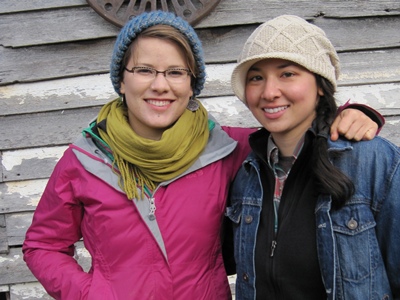
3. Grow the Biodynamic Scholarship Fund:
We are expanding our Biodynamic Scholarship Fund so that anyone who needs financial support can apply for a scholarship to attend a biodynamic workshop or course at participating education centers across North America. We have also opened the fund to farmers who need financial support to have a biodynamic consultant visit their farm. To date, the scholarship fund has awarded over $70,000 in scholarships to more than 300 individuals, and receives numerous applications for support every month.
4. Foster and Support Professional Learning Communities:
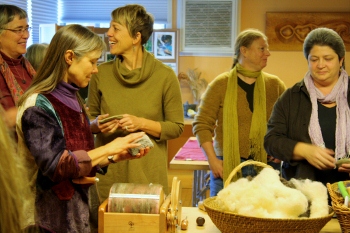
In the last three years the BDA has helped birth a learning community for people doing educational work with children and youth on farms, as well as a learning community for biodynamic researchers.
Based on growing interest in this kind of peer learning, we plan to help bring into being other learning communities, which could be organized around specific regions or specific areas of focus – for example, biodynamic dairy farmers, CSA growers, mentor farmers, etc. In some cases, the BDA will help start and provide financial support for the work of a learning community; in other cases the BDA will simply provide infrastructure for social networking and the opportunity to meet up at our North American conference every other year.
5. Design and Deliver Advanced Trainings in Biodynamics:

As biodynamics grows and develops across the continent, the need is beginning to be felt for more advanced courses and training opportunities that can meet the need of different audiences, such as advanced farm management courses for CSA farmers or crop and livestock farmers or winegrowers. Advanced training is also needed in the area of the production and use of the biodynamic preparations. Designing and delivering curricula in these areas will be a key role of the biodynamic educators collaborative described below.
6. Develop a Biodynamic Educators Collaborative:
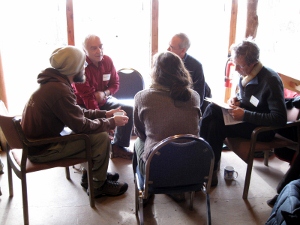 We are fortunate to have many gifted farmers, consultants and educators teaching biodynamics at this time, but by and large, they are each working quite independently or in small regional groups, developing highly individualized approaches. While this individualization is healthy and important, we identified a desire and need for more opportunities for collegiality and cooperation. We also heard from many people a desire to strengthen the connection of biodynamics to its anthroposophical foundations. In 2013 we launched the Biodynamic Educators Collaborative, a learning community of biodynamic educators from across North America created to foster collegiality, identify and nurture best practices, and encourage a deepening and cross-fertilization of philosophy, principles and practices. This group, and its members, are also acting as a kind of loose knit faculty that can support all of the above described efforts.
We are fortunate to have many gifted farmers, consultants and educators teaching biodynamics at this time, but by and large, they are each working quite independently or in small regional groups, developing highly individualized approaches. While this individualization is healthy and important, we identified a desire and need for more opportunities for collegiality and cooperation. We also heard from many people a desire to strengthen the connection of biodynamics to its anthroposophical foundations. In 2013 we launched the Biodynamic Educators Collaborative, a learning community of biodynamic educators from across North America created to foster collegiality, identify and nurture best practices, and encourage a deepening and cross-fertilization of philosophy, principles and practices. This group, and its members, are also acting as a kind of loose knit faculty that can support all of the above described efforts.
7. Leverage the BDA’s North American Conference:
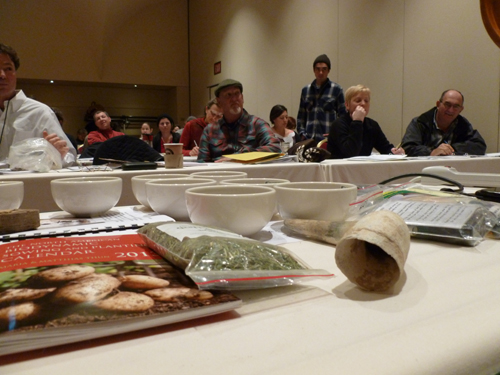
The BDA’s biennial conference is a key opportunity to address many of our educational and community building goals, and will be a kind of nexus point for all of the above efforts. Already in the 2012 conference we have incorporated:
- Offering a slate of over 50 workshops targeted to a variety of audiences, including a “BD Basics” track throughout the conference;
- Encouraging presenters to collaborate with one another in developing and delivering workshops;
- A gathering of biodynamic educators following the conference as a first step in forming the new collaborative;
- Gatherings of NABDAP mentor farmers and apprentices just prior to the conference;
- Using the conference to identify and convene new and emerging learning communities through open space networking.
For future conferences, we plan to build upon these successes and incorporate additional elements, such as an advanced training track, to support the educational work outlined above.

